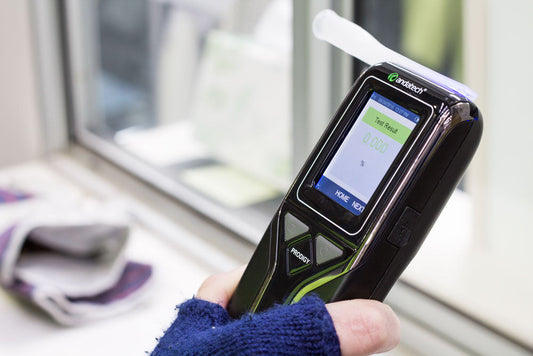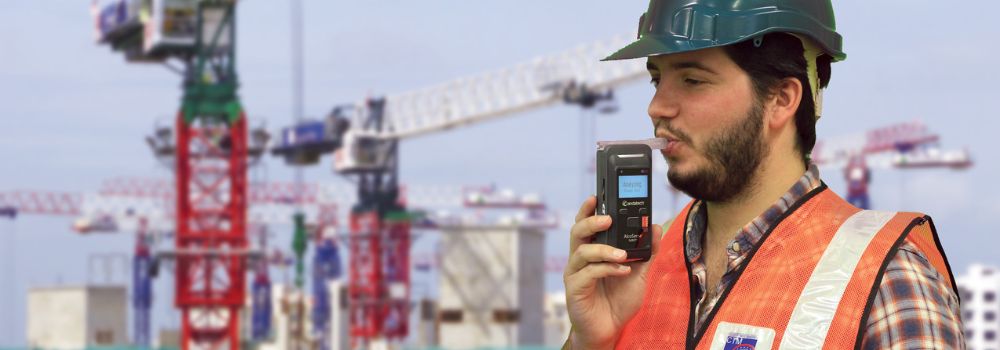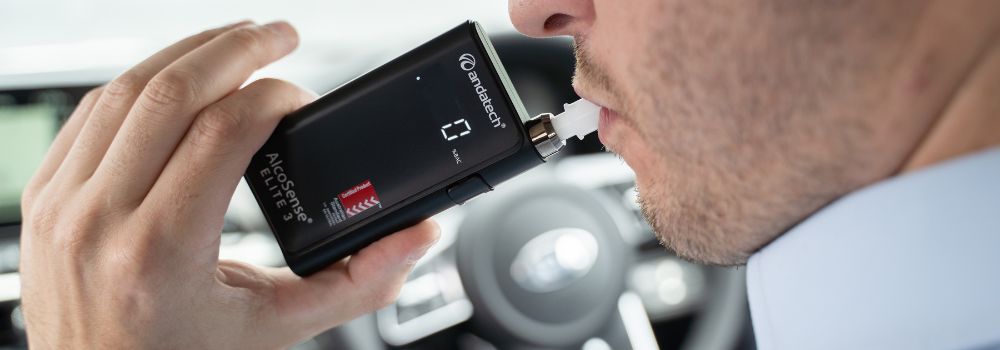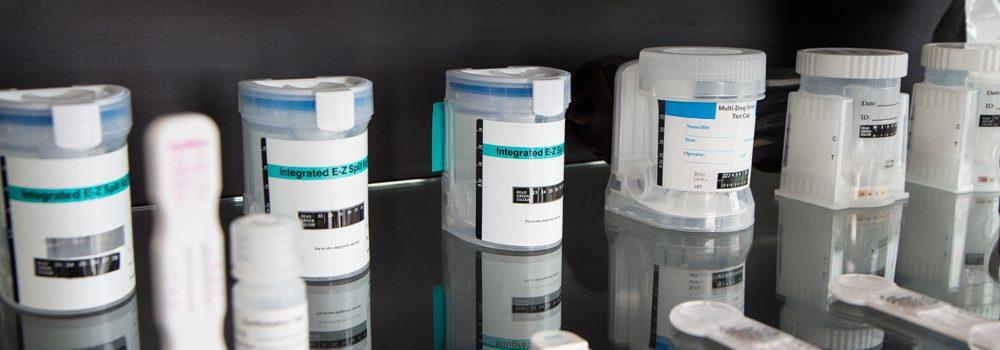Alcohol and safety don’t mix — especially in high-risk workplaces like transport, construction, oil & gas, and manufacturing. Even small amounts of alcohol can impair judgment, coordination, and reaction times, increasing the risk of accidents.
Recognising this, the Department of Occupational Safety and Health (DOSH) issued the Guidelines on Preventing and Responding to Drug and Alcohol Problems in the Workplace to help Malaysian employers manage these risks. Among the measures recommended, DOSH highlights breathalysers as a valuable tool to detect impairment and prevent incidents before they happen.
What DOSH’s guidelines say about alcohol & impairment
DOSH makes it clear that impairment from alcohol or drugs is a workplace hazard. Under the Occupational Safety and Health Act (OSHA 1994), employers have a duty to ensure, as far as practicable, the safety, health, and welfare of employees. Allowing impaired individuals to work goes against this duty.
The guidelines emphasise that:
- Alcohol use reduces alertness, concentration, and reflexes.
- Impairment is not limited to active drinking — “hangover” effects can also affect workplace performance.
- Employers should establish procedures to identify and respond to impairment at work.
By addressing alcohol impairment proactively, organisations protect not only their workers but also their productivity and legal compliance.
Why DOSH recommends testing & detection tools
Within its framework, DOSH highlights the importance of self-assessment tools like breathalysers. Employees should have access to voluntary testing if they suspect impairment, helping them make safer decisions before starting work.
The guidelines also stress that employers need:
- Procedures for identifying impaired individuals.
- Fair, consistent approaches to managing alcohol use.
- Training for supervisors to recognise and address impairment.
Breathalysers fit directly into this model by providing objective, immediate results — removing guesswork and ensuring transparent enforcement of workplace alcohol policies.
How breathalysers help workplaces stay safe & compliant
Breathalysers support DOSH’s recommendations in several key ways:
- ✅ Fast and accurate results — instantly detect alcohol impairment before an employee begins safety-critical tasks.
- ✅ Objective and fair — removes bias by providing measurable data rather than relying on observation alone.
- ✅ Flexible implementation — suitable for self-testing, entry-point screening, or randomised workplace checks.
- ✅ Policy support — helps define clear BAC thresholds and consistent responses to impairment.
- ✅ Compliance-ready — certified devices (AS3547) ensure accuracy meets international standards.
How to implement breath testing in your workplace
Based on DOSH’s guidelines, here are practical steps workplaces can take:
- Risk assessment → Identify roles where alcohol impairment poses the greatest hazard.
- Create a written policy → Outline when testing is done (pre-shift, random, post-incident), BAC limits, and consequences of positive tests.
- Train supervisors and staff → Ensure everyone understands impairment risks and the testing process.
- Provide access to breathalysers → Enable voluntary or self-assessment testing, especially for safety-sensitive roles.
- Maintain equipment → Ensure devices are calibrated and reliable to support consistent enforcement.
LEARN MORE: Alcohol Testing Laws in Malaysia: What Employers Need to Know
Andatech Malaysia’s workplace solutions
At Andatech Malaysia, we provide a wide range of workplace breathalysers that align with DOSH’s recommendations and international best practices:
- Sentry → Baton-style breathalyser for contactless testing. No mouthpiece required. Results delivered in 3 seconds.
- Soberlive FRX→ Connected wall-mounted unit with facial recognition and data logging for accountability.
- Prodigy S Print Pack → Handheld professional breathalyser with a Bluetooth printer for record-keeping and compliance. Standard version without printer also available.
All our breathalysers are AS3547 certified, ensuring accuracy and reliability. With ongoing calibration support, Andatech makes it easy for workplaces to implement alcohol testing programs that meet DOSH’s expectations.
Conclusion
DOSH’s guidelines make it clear: managing alcohol use in the workplace isn’t optional — it’s a matter of safety and compliance. By incorporating breathalysers into your workplace safety strategy, you can detect impairment, reduce risks, and protect both your employees and your organisation.
At Andatech Malaysia, we’re committed to helping businesses meet their obligations under DOSH while building safer, healthier workplaces.
Speak to our team today for free consultation about implementing an alcohol safety program in your organisation!
Disclaimer: The information provided in this article is for general reference only. Please seek advice from professionals according to your business’s needs.
Written by Andatech Marketing









